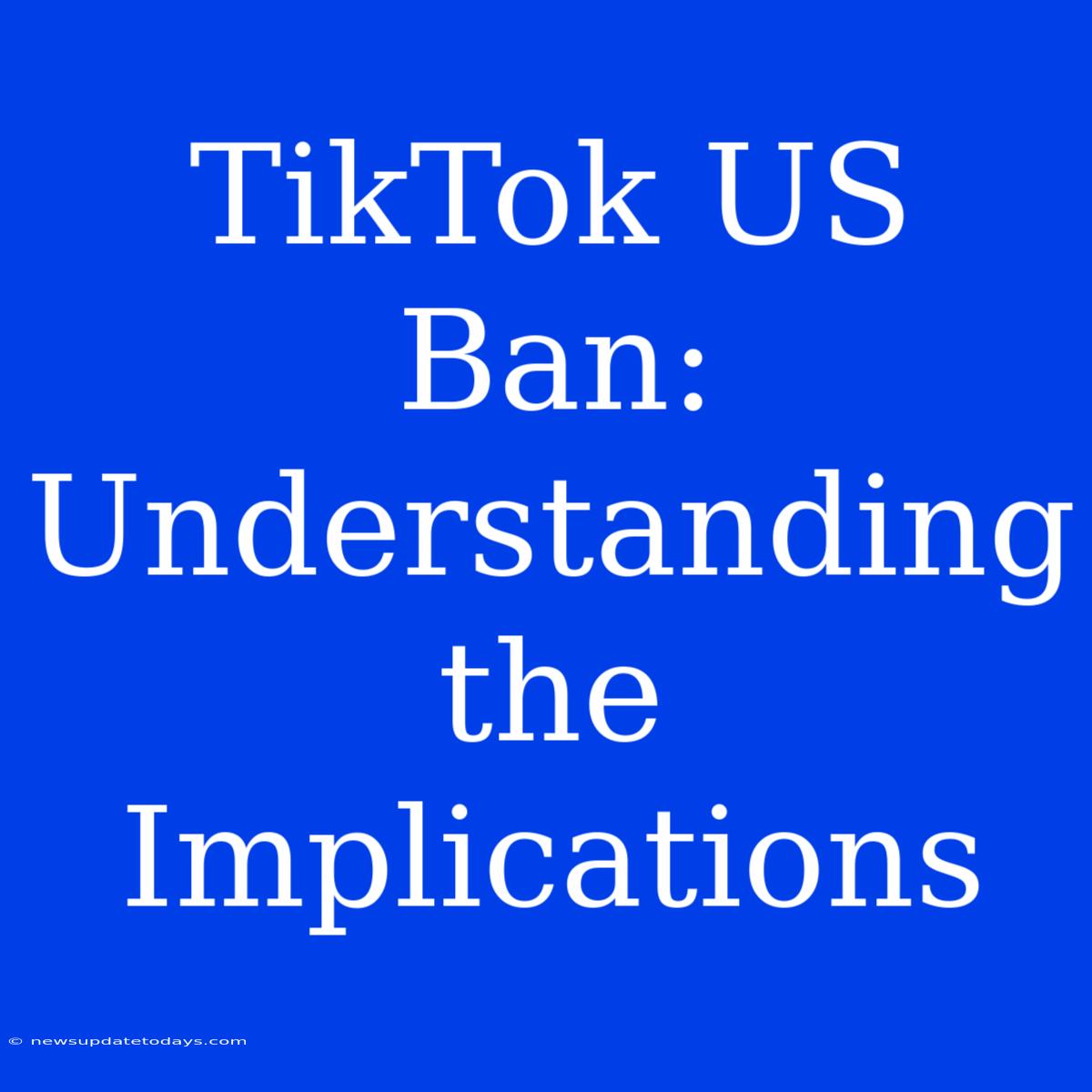TikTok US Ban: Understanding the Implications
The potential ban of TikTok in the United States has sparked significant debate, raising concerns about national security, data privacy, and the future of social media. This article delves into the implications of a TikTok ban, exploring its potential effects on users, businesses, and the broader digital landscape.
National Security Concerns: The Core of the Issue
The primary driver behind calls for a TikTok ban is national security. Concerns center around TikTok's ownership by the Chinese company ByteDance. Critics argue that this ownership allows the Chinese government access to user data, potentially compromising sensitive information and influencing American users. The alleged ability of the Chinese government to manipulate algorithms and spread propaganda further fuels these concerns. This data access is the heart of the debate, with many arguing that the risks outweigh the benefits of the platform.
Impact on Users: A Loss of Connection and Content?
A TikTok ban would profoundly impact its massive user base in the US. Millions rely on the platform for entertainment, social connection, and even business. The loss of this platform would mean:
- Disruption of social networks: Many users rely on TikTok for communication and building relationships. A ban would sever these connections.
- Loss of creative expression: TikTok has become a hub for creative content creation, with numerous users building careers and communities around their videos. A ban would stifle this creativity.
- Impact on mental health: For some, TikTok provides a sense of community and belonging. A sudden removal could negatively impact mental well-being.
Economic Implications: Beyond the App Store
The ramifications extend far beyond individual users. Businesses leverage TikTok for marketing and advertising, reaching a vast audience. A ban would:
- Disrupt marketing strategies: Businesses invested heavily in TikTok marketing would need to adapt, potentially incurring significant costs and losing reach.
- Affect creator economies: Many creators earn income through TikTok's features. A ban would directly impact their livelihoods.
- Reduce competition in the social media market: The removal of TikTok could lessen competition, potentially allowing other platforms to dominate the market.
Data Privacy: A Broader Conversation
The TikTok debate highlights a wider conversation about data privacy and the security of user information on social media platforms. It forces us to question the level of access companies have to our data and the potential for misuse by foreign governments. Strengthening data privacy regulations and implementing stricter security measures are crucial steps regardless of the outcome of the TikTok ban.
The Future of Social Media: Navigating Geopolitical Tensions
The potential TikTok ban underscores the complex interplay between technology, geopolitics, and national security. It raises important questions about the role of foreign-owned companies in the digital landscape and the need for a balanced approach that protects national interests while preserving freedom of expression and innovation. The future will likely see increased scrutiny of social media platforms and stricter regulations to address these concerns. The long-term impact remains uncertain, but the debate itself has already significantly reshaped the conversation around social media safety and international relations.

